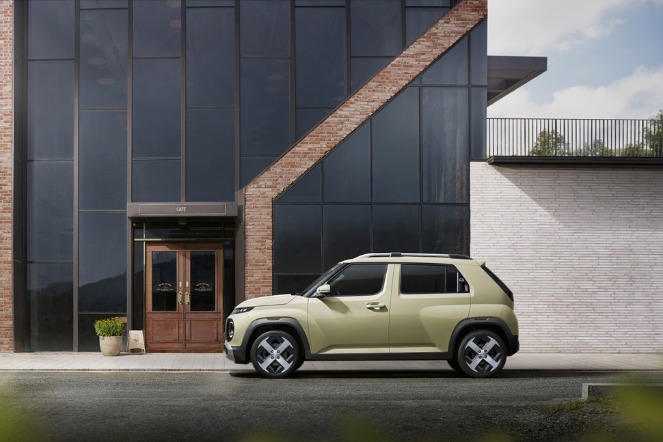UPDATE: South Korea’s leading automakers, Hyundai Motor Co. and Kia Corp., are making a high-stakes entry into Japan’s notoriously challenging automotive market, dubbed a “graveyard for imported vehicles.” The two companies will unveil their latest electric vehicle (EV) models at the Japan Mobility Show, opening on October 30, 2023, marking their first joint appearance at this prestigious event.
This strategic move comes as both companies aim to capitalize on Japanese automakers’ slow transition to electrification. Their presence at the show signals a renewed commitment to compete against dominant local brands such as Toyota, Honda, and Nissan, which have traditionally ruled the market.
The automakers will showcase a range of all-electric vehicles, including Hyundai’s flagship IONIQ 5 and the updated hydrogen fuel-cell NEXO. Kia will debut its first purpose-built commercial EV, the PV5, aiming to capture a share of Japan’s burgeoning EV market. This initiative highlights Hyundai and Kia’s strategy to avoid direct competition with established internal combustion engine models by targeting areas where local manufacturers are lagging.
Hyundai’s recent re-entry into Japan, initiated in 2022 after a 12-year hiatus, has shown promise. The company recorded 759 vehicle sales in the first nine months of this year, surpassing its total sales of 618 in 2022. The best-selling model, the Inster Cross (known as the Casper Electric), appeals to Japanese consumers’ preference for small cars, fitting into lower tax categories.
However, the competition is fierce. Chinese automaker BYD Co. is aggressively expanding its footprint in Japan, posing a significant threat to Hyundai and Kia. Market tracker SNE Research reports that Nissan led Japan’s EV market in the first half of 2025 with 11,695 units, capturing about 40% of total sales. Tesla followed with 5,542 units, while BYD accounted for 1,409 units.
At the same mobility show, BYD plans to unveil a full line-up, including the hybrid Sealion 6 DM-i and the luxury Yangwang U9 supercar, further intensifying competition. Meanwhile, Japan’s traditional automakers are also ramping up their efforts. Toyota is set to reveal a new luxury Century Coupe with a starting price of around 25 million yen ($164,780), while Honda will showcase its upcoming 0 Series EVs, expected to launch next year.
As Hyundai and Kia venture into this insular market, their success could symbolize a major breakthrough against Japan’s long-standing automotive giants. Their efforts to introduce innovative EVs not only aim to capture market share but also address consumer demand for sustainable transportation options.
The Japan Mobility Show is poised to be a defining moment for these automakers, with the potential to reshape the automotive landscape in Japan. Hyundai’s recent recognition as Korea’s top-performing company in Time magazine’s annual ranking of the World’s Best Companies underscores the stakes at hand.
As the automotive battle intensifies, all eyes will be on the developments from the Japan Mobility Show. Stay tuned for more updates as this story unfolds.







